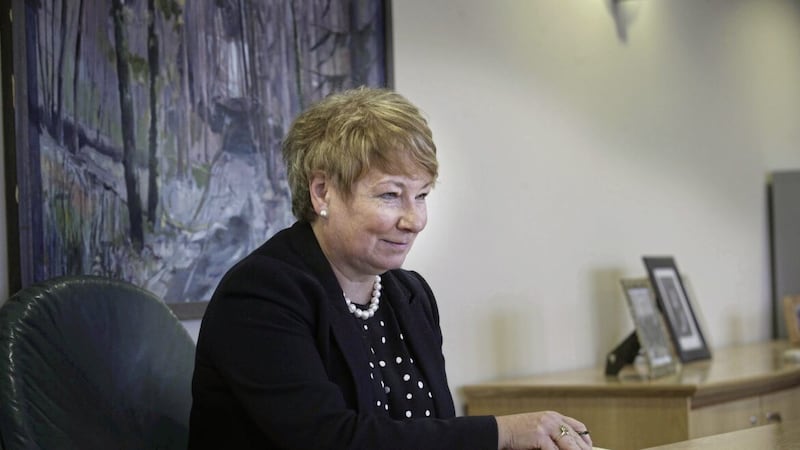THE Police Ombudsman carried out "forensic analysis" to reach legally-sound findings of collusive behaviour by the RUC in a series of loyalist murders, the High Court has heard.
Counsel for Marie Anderson rejected claims that her disputed conclusions in investigations into Troubles-era killings involved "jumps of logic".
The watchdog is facing a challenge from a group of ex-policemen and women over findings in three reports.
The Northern Ireland Retired Police Officers Association is seeking to have parts of the public statements declared unlawful.
One of the cases centres on a probe into a series of loyalist paramilitary murders in the south Belfast area between 1990 and 1998.
Earlier this year the Ombudsman, Marie Anderson, found evidence of "collusive behaviour" by police in the attacks, which included the February 1992 massacre at the Sean Graham betting shop on the Ormeau Road where UDA gunmen shot dead five Catholic victims.
Legal action is also being taken over the report into the police handling of loyalist killings in the north west region from 1989 to 1993.
A third challenge relates to findings in the case of four men wrongly accused of murdering a British soldier in Derry. Known as the Derry Four, in June this year the Ombudsman concluded that RUC
officers had unfairly obtained confessions from them for the killing of Lt Stephen Kirby in the city in 1979. The four men later fled Northern Ireland until their acquittal in 1998.
Backed by police federation representatives, former RUC officers claim the ombudsman was legally forbidden from making findings which effectively branded them guilty of colluding in brutal terrorist murders without proper due process.
A Court of Appeal judgment in 2020 restricted her scope to accuse former officers of the criminal offence of collusion with paramilitaries. Acknowledging that limitation, Mrs Anderson said she had identified conduct within the RUC that amounted to "collusive behaviours".
David McMillen KC, for the retired officers, insisted she cannot use that term. He told the court there were "jumps of logic" in the ombudsman's findings, which included an alleged failure to warn terrorist targets that their lives were in danger.
But Simon McKay, for the ombudsman, insisted that his client applied a proper definition and approach.
"All of the complaints make allegations of collusion, and when she carries out this extensive investigation, one sees at the beginning of the report precisely what its scope and nature has been.
"She reaches a view that collusion is made out against identifiable individuals or, where there might be principle and secondary offenders, unidentified individuals, she will refer that to the PPS (Public
Prosecution Service). If it is misconduct, she will refer that to the chief constable. But if she doesn't, as in this case, she is entitled to report it.
"She identifies a series of behaviours that are indicative of collusion, not determinative of it."
According to Mr McKay it could not be suggested there was no evidence to support the ombudsman's findings of a failure to act on intelligence.
"It's the person whose relative was murdered who says `I didn't get the threat assessment, I was not provided with any notification that a threat existed at the time it existed'," he pointed out.
"That's precisely the ombudsman's logic in reaching the conclusion she does. What my friend seeks to do is precisely what public law should not do. He's trying to put himself in the position of the ombudsman and change the outcome. It's simply not right to say there are these jumps of logic."
The case continues.








